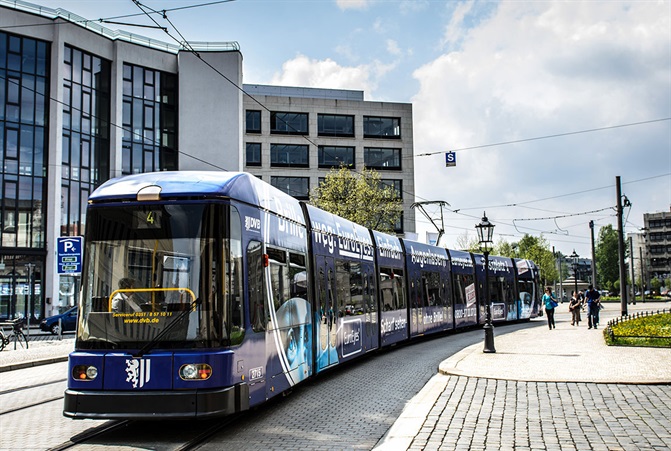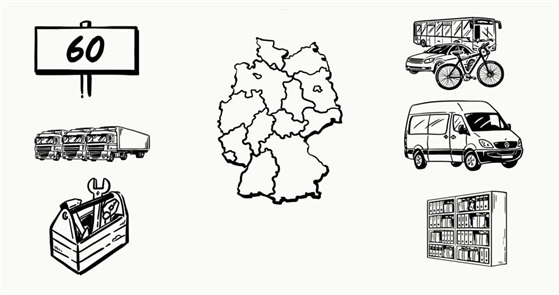🚉
Life in Germany > Traffic and Transport

©
Bild_SergeBystro_CC BY 2,0
How does the traffic system in Germany work?
What options for travelling do I have?
In Germany there are many and mostly well-developed streets, which is why it is a pleasure to drive by car. You have to drive on the right sight. Also cyclists and motorcyclists have to stick to it. Goods are often transported in Germany with cars, vans and trucks. Each of the currently over 60 million motorized vehicles in Germany must have an insurance, technically tested and registered with the responsible authority. This is covered by the Technical Supervisory Association (TÜV), the German Motor Vehicle Supervisory Association (Dekra) and the local approval offices of cities and states. Driving with a vehicle without insurance and admission on public roads is prohibited by law and is tracked with high fees. To drive a vehicle you need a valid European driving license in Germany. On it the category of the vehicles which can be operated is given. They differed roughly in motorcycles, cars, trucks and buses. From the age of 17, you can take a driving license in appropriate driving schools. However, 17-year-olds are only allowed to drive with an adult with a driving license until they are of age.
Bicycles are also very popular in Germany because they are inexpensive and can be used without a driver's license. In addition, cycling is perceived as a natural leisure sport. In Germany, there is a well-developed network of bicycle paths, which are recognizable by signs with a bicycle symbol. If cyclists cannot use a cycle path, they must follow the same rules as apply to car drivers on the road. Since this is not completely harmless, the head should be protected with a bicycle helmet. If you drive a non-traffic-safe bike, for example a bicycle without lights, you can get a penalty. It is also prohibited to drive under the influence of alcohol or drugs. Both cars and bicycles can be bought new or used in Germany. However you should not purchase a car or motorcycle without valid papers for the vehicle. Do not buy vehicles on the black market or from unknown sellers.
In addition to individual transport by car or bicycle, there is public transport. In the railways you will find trains, trams and subways. Buses are available for local transport in cities as well as on motorways between two destinations. These drive short distances within cities as well as long distances connecting cities and countries (see section "Public transport"). You can also be transported by a payed taxi. You can book a taxi from anywhere in Germany by calling 22456. In addition, there are also individual taxi numbers for each individual city or region.
Phrases
I have a valid drivers license.
Ich besitze einen gültigen Führerschein.
I have a drivers license for..
Ich besitze einen Führerschein zum ...
… driving a car.
... fahren eines Autos.
… driving a motorcycle.
... fahren eines Motorrads.
… driving a moped.
... fahren eines Mopeds.
… driving a bus.
... fahren eines Busses.
… driving a truck.
... fahren eines LKWs.
I don't have a drivers license.
Ich besitze keinen Führerschein.
Where can I make a drivers license?
Wo kann ich einen Führerschein machen?
I have a drivers license from my hometown.
Ich habe einen Führerschein aus meiner Heimat.
Is there a driving school nearby where I can make a drivers license?
Gibt es in der Nähe eine Fahrschule, bei der ich einen Führerschein machen kann?
I would like to buy a (vehicle).
Ich möchte ein … (Fahrzeug) kaufen.
Where can I get an insurance for my vehicle?
Wo kann ich eine Versicherung für mein Fahrzeug bekommen?
Where can I get a bike?
Wo kann ich ein Fahrrad bekommen?
Is it possible to rent a bike?
Gibt es die Möglichkeit, sich ein Fahrrad auszuleihen?
Where can I buy a helmet?
Wo kann ich einen Helm kaufen?

